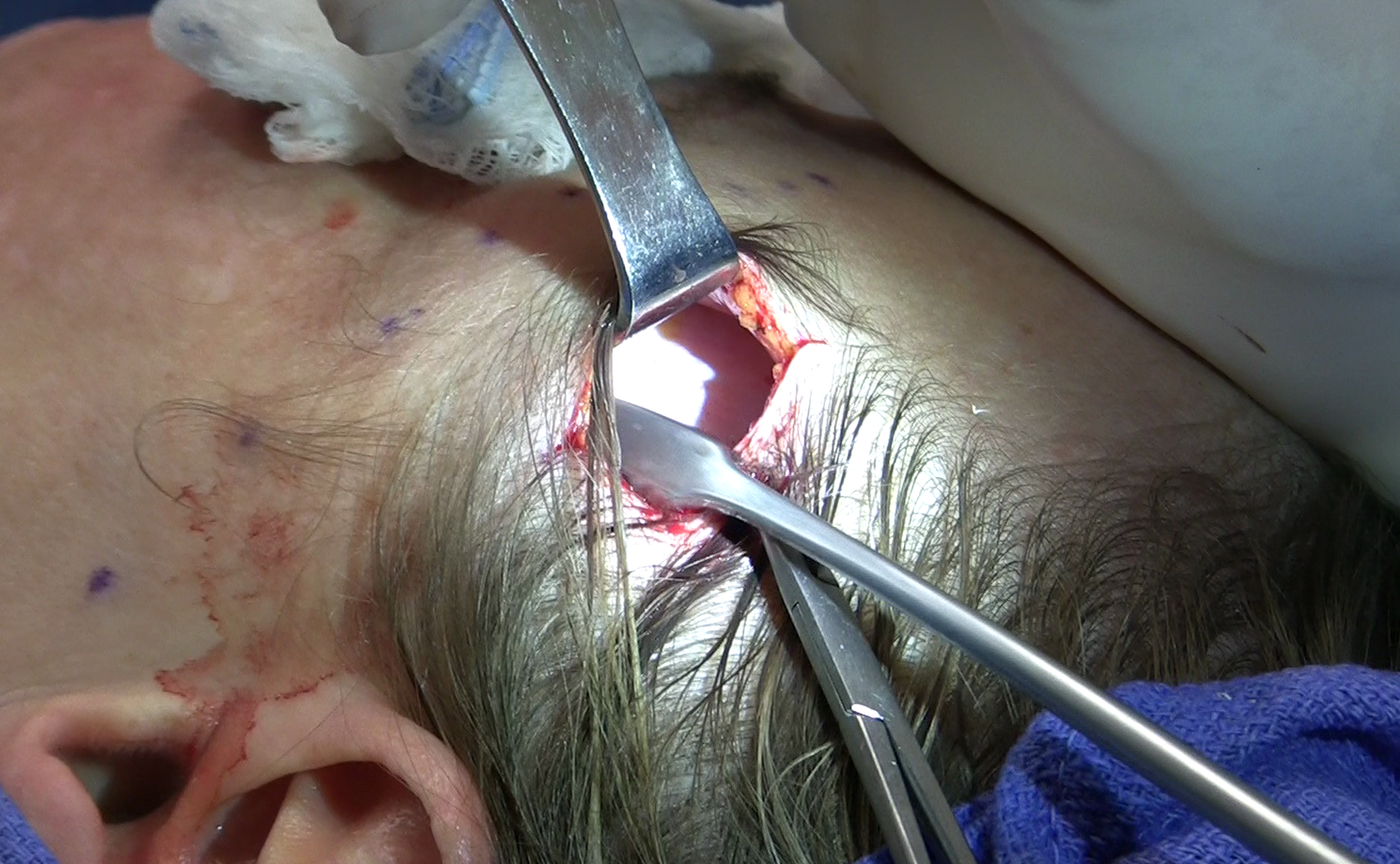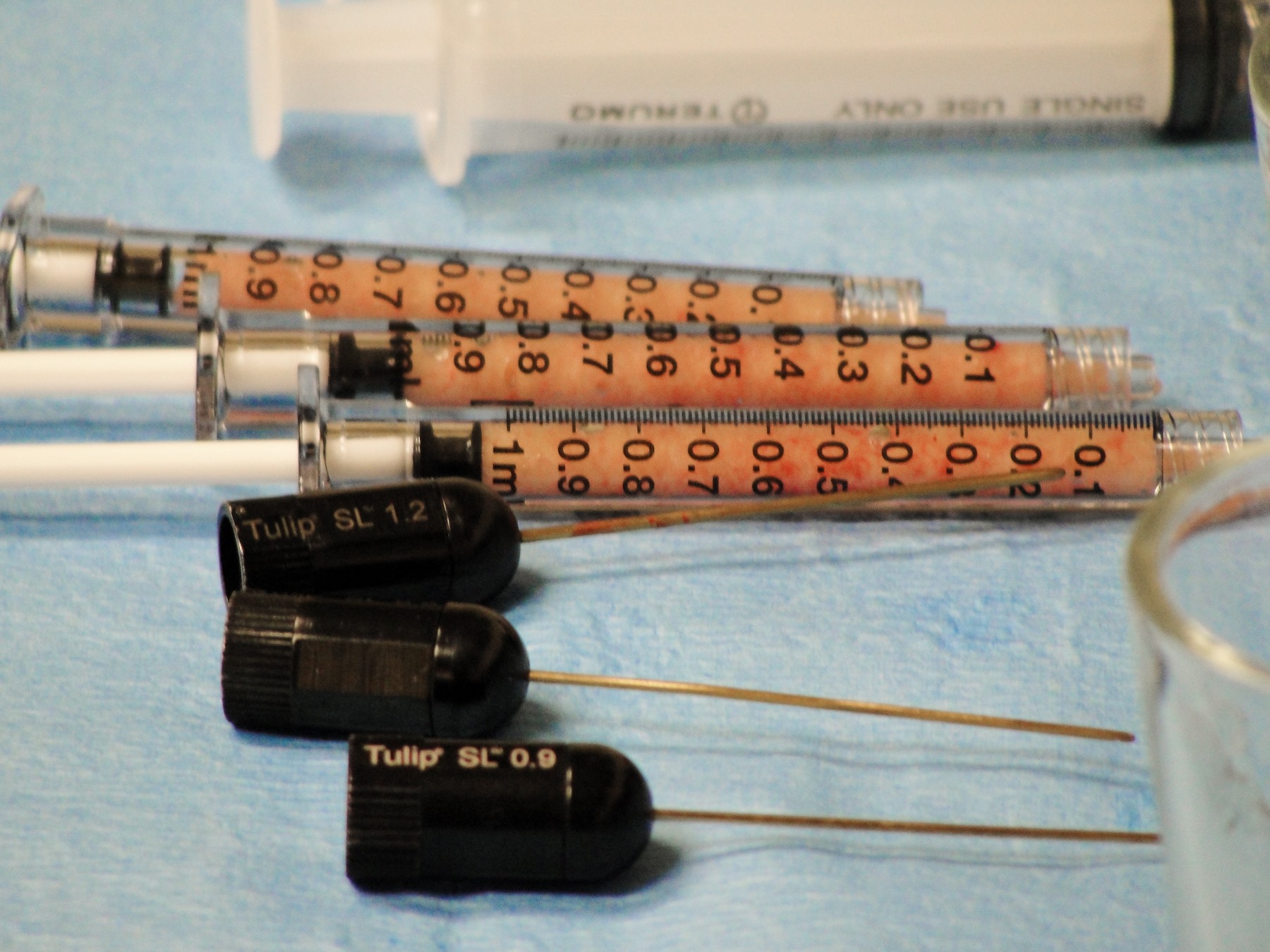**Warning some people may find the following image disturbing**
The Big Debate is a regular Badger feature which brings the spirit of competitive debating to the printed page. Two writers tackle a contentious topic, representing polarised views. They might not agree with what they write – on this page, they represent a viewpoint, not an individual. This week, they discuss whether cosmetic surgery should be banned.
YES
Rebecca Spencer: Comment Editor
I first want to clarify that I am specifically addressing the issues caused by cosmetic surgery, not plastic surgery. Cosmetic surgery is elective, not ‘needed’ and intends to improve a person’s appearance. Whereas plastic surgery is dedicated to the reconstruction of facial and body defects due to birth disorders, trauma, burns, and disease.
My problem with cosmetic surgery is that it is a commercial industry which seems to rely upon self-loathing, and it perpetuates ideas of the natural body as an undesirable body. I mean, how many women in this world are born with the genetic make-up for 0% tummy fat, a butt as big as a hippo’s, a 22-inch waist and DD boobs that defy gravity. NO ONE! But how many women actually look like that, as a result of having money for cosmetic surgery? Tonnes. No one is perfect, yet biotechnologies are striving to create the ultimate ‘feminine perfecta’ to override the genetic code.
In order to understand why people, predominantly women, ‘elect’ life-threatening surgery, we must look at the social world that moulds perceptions of the self and the body. Lesley Sharp argues that cosmetic surgery patients are ‘the victims of oppressive, idealised standards of beauty, where physical appearance drives definitions of self and social worth’. We live in a society that puts the female body under constant analysis and targets it as the main victim of consumerism. Constantly fed with new standards of beauty that are more often than not unreachable, without some kind of aesthetic change and purchase. Right now, we are fixated with Kim K style butt fillers, 20 years ago we were fixated with the “Kate Moss diet”.
Sure, we live in a material world, but this is getting out of hand. From butt to jaw fillers, from facelifts to liposuction; the natural body seems to be slowly disintegrating. 18-year olds are asking their parents for a boob-job for their birthday. Should we think of this as normal? Am I the only one this is ringing alarm bells for? Changing your appearance can be a form of expression and art. For example, Body modification such as tattooing is usually intended to make you stand out. But, what’s so scary about the increasing popularity of cosmetic surgery, is that it’s becoming a requirement to be able to fit in. As McCabe said, for most women ‘it’s no longer a question of whether to undergo cosmetic surgery-but what, when, by whom and how much’.
Global advertisement of cosmetic surgery adopts a camouflaging language of ‘liberation’ and ‘agency’, in order to persuade women that they are empowered in their choice to undergo such surgeries in order to ‘better themselves’. This language hides the fact that in reality, women experience intense pressure from the media to comply to beauty standards. This begs the question; do we own our bodies? Or are we simply stewards of them? When women choose to get a ‘boob-job’ are they empowered agents, or are they falling prey to capitalist demands? The goal of plastic beauty is so glamorised that it is painted as an enjoyable rather than painful experience – so often the risks are too lightly considered; (infection, bleeding, embolisms, pulmonary edema, facial nerve injury, unfavorable scar formation, skin loss, blindness, crippling).
Women often justify opting for plastic surgery by stating that it will improve their self-esteem, their outlook on life and their body-image as individuals. In fact, Surgeons argue that cosmetic surgery serves a medical purpose as a form of therapy, like an antidepressant. But, we need to start addressing the route of the problem. Why do they feel they have to change to be accepted or desired?
In Brazil’s capital Rio de Janeiro, women stand in queues at public hospitals to be assessed as to whether they are ‘ugly’ enough to undergo surgery for an extremely subsidised cost. Women find it hard to get a job without conforming to ‘plastica perfecta’ ideals of beauty and even ‘worry about being fired’ if they do not undergo surgery. By authorising subsidised cosmetic surgery to the poor, the Brazilian government are
legitimising discrimination based on female appearance, and enforcing sexist, patriarchal ideals of beauty.
‘it’s no longer a question of whether to undergo cosmetic surgery-but what, when, by whom and how much’
I understand people want choice. However, from a macro-perspective the issue is that we even allowed these operations to exist on a large and commercialised scale in the first place. If we allowed the genetic engineering of embryos, or a nation to walk around with guns for decades and then suddenly took away that freedom, there’d be an uproar. But uproar isn’t always in response to immorality. We should always, as a society, assess whether choice is a good or bad thing. If everyone had free-choice over everything, the world would be running riot.
The obvious argument is that taking away the right to cosmetic surgery would be taking
away people’s choice. But I think banning cosmetic surgery would be opening the door to
freedom from the chains of unreachable beauty standards. It’s a utopian ideal, and I doubt the capitalist cosmetic industry will ever cease to exist. But just imagine if it did. I would propose that cosmetic surgery be phased out, and the industry should shift towards prioritising plastic surgery – which is about medical needs, rather than cosmetic desires. I know my opinion is controversial, that ‘we should all be able to be happy and accepted as we are’, but I think it is one that needs to be emphasised in this Instagram age.
Image of cosmetic surgery for a face lift.

NO
Charlotte Roberts
Cosmetic surgery is a taboo but prominent subject in today’s society. Tabloids focus on celebrities changing appearances, and YouTube holds a goldmine of ‘My Surgery Experience’ videos. Cosmetic surgery is something that people either love or hate, and it isn’t without its problems. However, I believe that banning cosmetic surgery would cause far more issues than any nose job ever could. We live in an aesthetically driven society where we are already obsessed with altering and changing how we look. We might wear coloured contact lenses or dye our hair darker. We might pierce our ears or get another tattoo.
All of these are ways that people choose to change the otherwise unchangeable. The concept of cosmetic surgery itself is nothing new; simply researching the history of cosmetic surgery brings up examples of augmentations from as far back as the ancient times. Snipping and stitching to edit your body has always been around in some form or another. In this sense cosmetic surgery is nothing new; it has been a part of human existence for longer than we’ve been around.
Perhaps the simplest argument as to why cosmetic surgery should never be banned is the subject of choice. We live in a society where we are relatively free to do whatever we want to our bodies, as long as it doesn’t harm or offend anyone around us. Whether you personally think cosmetic surgery is a good thing, whether you personally think it’s a bad thing – it simply doesn’t matter.
What someone chooses to do with their body affects no one but them: it’s their choice. It is simply an option, not a necessity. Banning cosmetic surgery would be the start of a slippery slope, in which people find that their rights over their own bodies are being dictated to them.
One study on cosmetic surgery found that, in the months after their surgery, patients were ‘healthier, less anxious, and more confident.’ If someone is so insecure about a feature that it impacts their daily life, who are we as a society to ever stop them from changing this. Even more, why would we ever want to stop people from changing something that they’re unhappy with.
Deciding to undergo cosmetic surgery is not a simple and quick decision; there are meetings, consultations, and aftercare. It is not something that people take lightly, and those that choose to do it are doing it for a reason.
Even without cosmetic surgery, people will still have their own personal insecurities and hang ups about their appearance. If cosmetic surgery was banned, then so many people would be stopped from making a decision that might ultimately leave them happier and more confident. What happens once cosmetic surgery is banned? What do we do with all the people in the world who already have had forms of cosmetic surgery? Do we force them to reverse the procedures? If they refuse to do so, what do we do?
What someone chooses to do with their body affects no one but them
Perhaps in a world where no cosmetic surgery had previously existed this would work, but in our current situation, it’s impossible. Things are never simple when you remove something that someone once had; removing the option to undergo cosmetic surgery would no doubt lead to major upset and anger.
Perhaps the most important reason as to why cosmetic surgery should never be banned is down to demand. The cosmetic surgery industry is booming, and has been for a while. You can book yourself into holiday destinations where a nip and tuck is included, or buy a celebrity inspired filler bundle to achieve their look. It’s undeniable that there is a demand for cosmetic surgery, and it will not go away easily.
Banning cosmetic surgery will force people to find more dangerous ways to achieve certain looks, whether that be through unqualified surgeons or DIY internet kits. Banning cosmetic surgery could lead to a medical disaster. Dodgy fillers and botched surgeries already exist, and banning legal cosmetic surgery would only amplify the amount of people finding themselves in dangerous situations.
Banning cosmetic surgery will not remove the demand for it, and the people who want it enough will always find a way. Cosmetic surgery as an industry is not perfect. It has its faults and problems, but this does not mean that it should be banned. What is needed is more transparency.
We need to welcome a society that rejects the idea of cosmetic surgery as a taboo, and makes people comfortable to come out and feel comfortable with their choices. It is only when cosmetic surgery carries no element of shame or disapproval that things can change for the better. The banning of cosmetic surgery is something that should never be done.
It should remain exactly how it is now; an option. If you don’t want to undergo cosmetic surgery, then the simple answer is not to do it. But don’t take the choice away from those who do.
Header credit: bestinplas
Image credit: Paravis



